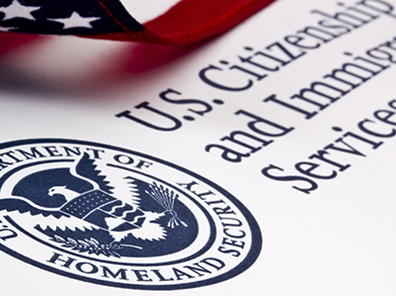
U.S. Citizenship and Immigration Services (USCIS), the branch of the Department of Homeland Security responsible for adjudicating immigration benefits, has announced that it intends to wind down its overseas presence in various American embassies and consulates abroad. This would result in a significant cost savings for the agency; stationing personnel abroad is a pricey affair.
One specialized media outlet, Law360, which caters mostly to attorneys, had this to say (partially behind a paywall):
Closing USCIS Offices Abroad Would Hurt US Expats Most
Law360 (March 12, 2019, 8:22 PM EDT) -- U.S. Citizenship and Immigration Services confirmed Tuesday that it is considering shuttering its international operations in a move that immigration attorneys say would significantly delay Americans expats seeking to bring their families to the U.S.
It's a curious spin to put on the proposal, and in any case dubious. The Department of State Bureau of Consular Affairs (DOS BCA) has long had a division dedicated to U.S. Citizen Services whose officers function at virtually every American embassy and consulate abroad. That division will take over the work from USCIS. It's possible that USCIS, which exists on a funding stream separate from congressional appropriations (the Immigration Examinations Fee Account) may even provide resources to augment BCA's appropriated budget with which to do the work.
But in any case, let's parse the words. Expats are, by nature, people who live abroad. The word is used loosely; legally and technically, a person who really expatriates is one who renounces his citizenship in favor of citizenship elsewhere, and if that were the case, they wouldn't be entitled to file applications or petitions on behalf of themselves or anyone else, either. Really, what is meant is a U.S. citizen who chooses to live in another country for a variety of reasons: Sometimes they are dual nationals, sometimes they can better afford to live elsewhere, sometimes it has to do with family roots, and sometimes it's the mere adventure.
Whatever the reason, the fundamental point is that they are living outside the United States. So why in the world are these individuals seeking to file papers for someone else to live here inside the country? And why should we, the general public, care if they are obliged to wait a little longer — which, as I've explained, is doubtful — or forced to choose between a longer wait abroad vs. traveling to a domestic USCIS office to take care of business more quickly? I don't find a deep well of sympathy inside myself for "expats" or their lawyers in such circumstances at all.
